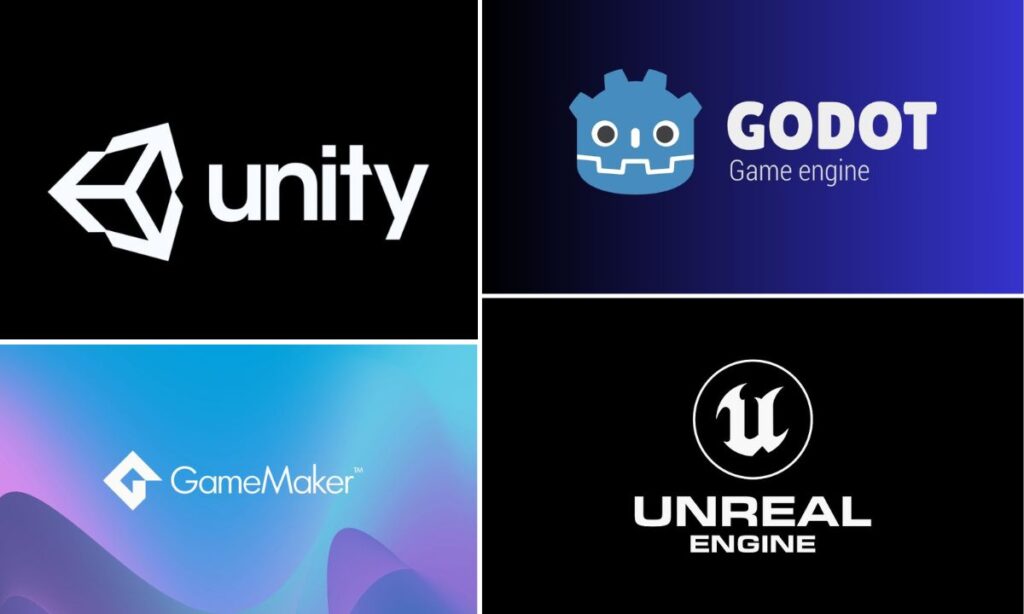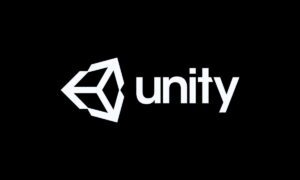In the world of indie game development, the choice of a game engine is one of the most critical decisions a developer can make. A game engine not only provides the necessary infrastructure for rendering graphics, handling physics, and scripting, but it also dictates the overall workflow, scalability, and final quality of the game. With a multitude of options available—ranging from free, open-source engines to sophisticated, commercial-grade software—indie developers have the flexibility to choose an engine that best fits their project’s specific needs, budget, and technical requirements.
This article is a comprehensive guide to the top game engines, suitable for indie developers. It covers both free and paid engines, detailing their features. Additionally, a comparison of these engines is provided to help developers make informed decisions when selecting the right tool for their game development projects.
Key Takeaways
- Unity and Unreal Engine are the most versatile and widely-used engines among indie developers, offering extensive platform support, robust communities, and scalable features. Unity is particularly noted for its cross-platform capabilities and large Asset Store, while Unreal excels in delivering high-quality, photorealistic graphics.
- Godot stands out as a completely free and open-source option, providing flexibility in both 2D and 3D game development. Its lightweight nature and active community make it a strong choice for developers who prioritize ease of use and cost-effectiveness.
- Specialized Engines like RPG Maker and Ren’Py are ideal for developers focused on specific genres, such as RPGs and visual novels. These engines offer genre-specific tools and ease of use, allowing developers to focus more on design and storytelling.
- Paid Engines like GameMaker and CryEngine offer advanced features and professional support, making them suitable for developers with larger budgets or more complex projects. These engines provide scalability and a broader range of tools, which can be crucial for certain types of games.
- Community Support is a critical factor to consider when choosing a game engine. Engines with larger, active communities, like Unity and Unreal, offer more resources, plugins, and third-party support, which can significantly reduce the learning curve and development time.
- Cost vs. Value should be carefully evaluated. Free engines provide powerful tools without upfront costs, but may include royalties or have limited support. Paid engines, while requiring a financial investment, often offer more comprehensive features and scalability, which can be essential for more ambitious projects.
Free Game Engines
For indie developers working on a budget, free game engines offer powerful features without the financial burden of licensing fees. Below are some of the most popular and capable free engines available today.
Unity (Free and Paid Versions)
Unity has long been a cornerstone in the indie game development community, thanks to its versatile capabilities and extensive support across multiple platforms. Unity’s free version is robust enough for many indie projects, providing full access to its core features.
Key Features:
- Cross-Platform Development: Unity supports a wide range of platforms, including Windows, macOS, Android, iOS, and major game consoles, allowing developers to reach a broad audience.
- Scripting Language: Unity uses C#, a popular and accessible programming language, making it easy for developers of all levels to start coding.
- Asset Store: Unity’s Asset Store is a vast marketplace where developers can purchase or download free assets, tools, and plugins to accelerate development.
- Licensing Tiers: Unity offers a free version with sufficient features for most indie projects, while paid tiers provide additional features, such as advanced analytics and support for larger teams.
Unity Licensing Tiers
|
License Type |
Key Features |
Annual Cost |
|
Personal |
Unity real-time development platform, Unity Cloud, Unity Ads and more |
Free |
|
Pro |
Additional features, no splash screen, Deploy to game consoles and more |
from $2,040.00 /year |
|
Enterprise |
Comprehensive features, Extended LTS support for 3 years, Build Server license capacity and more |
Custom pricing |
Godot
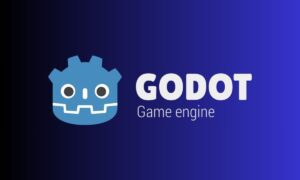
Godot is a completely free, open-source game engine that has quickly gained popularity among indie developers for its lightweight design and flexibility. It supports both 2D and 3D game development, making it a versatile choice for a variety of projects.
Key Features:
- Open-Source: Godot is licensed under the MIT license, meaning it’s free to use and modify without any royalties or fees.
- GDScript: Godot’s primary scripting language, GDScript, is designed to be easy to learn, especially for developers familiar with Python.
- Small Footprint: The engine is lightweight, ensuring quick setup and efficient performance, which is particularly beneficial for developers working on less resource-intensive projects.
- Active Community: Godot has a strong and growing community that contributes to its continuous improvement, offering frequent updates and extensive documentation.
Unreal Engine (Free and Royalty-Based)

Unreal Engine is renowned for its high-quality graphics capabilities, making it a favorite among developers aiming for photorealistic visuals. While the engine is free to use, it operates on a royalty-based model, where developers pay a percentage of their revenue once their game surpasses a certain threshold.
Key Features:
- Blueprint Visual Scripting: Unreal’s Blueprint system allows developers to create game logic without extensive programming knowledge, making it accessible to both beginners and experienced developers.
- Graphics Engine: Unreal is particularly strong in delivering high-fidelity graphics, with advanced lighting, shading, and particle effects.
- Marketplace: Unreal’s Marketplace offers a wide array of assets, plugins, and tools that developers can use to enhance their projects.
- Royalty Model: Developers can use Unreal Engine for free, but once their game generates over $1 million in revenue, they must pay a 5% royalty on gross revenue.
Unreal Engine Royalty Structure
|
Revenue Threshold |
Royalty Fee |
|
Up to $1 million |
0% |
|
Over $1 million |
5% of gross product revenue |
UPBGE

UPBGE is a fork of the original Blender Game Engine (BGE). It is actively developed and integrated into Blender, allowing users to create interactive 3D applications and games directly within the Blender environment.
Key Features:
- Integrated Development: Blender allows for seamless integration between 3D modeling, animation, and game logic, all within the same environment.
- Python Scripting: Developers can use Python to script game logic, which is particularly useful for those already familiar with the language.
- Real-Time Rendering: The engine supports real-time rendering, providing immediate feedback on game visuals and performance.
- Physics and Logic Bricks: Blender’s logic bricks system allows for visual scripting of game behavior without requiring deep programming knowledge.
Defold
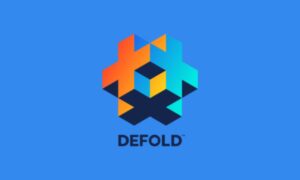
Defold is a lightweight game engine designed specifically for 2D game development, with a strong emphasis on performance and ease of use. It is particularly well-suited for mobile and web games.
Key Features:
- Lua Scripting: Defold uses Lua, a lightweight scripting language that is both easy to learn and highly efficient, making it ideal for rapid prototyping.
- Cloud-Based Project Management: Defold offers integrated version control and cloud-based project management, allowing teams to collaborate easily from different locations.
- Performance Optimization: The engine is optimized for performance, making it an excellent choice for mobile and web games where resource efficiency is critical.
- No Licensing Fees: Defold is completely free to use, with no hidden costs or licensing fees.
Phaser
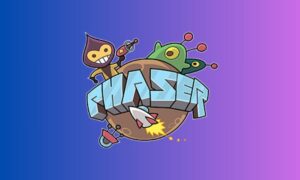
Phaser is an open-source HTML5 game engine focused on developing 2D games for web browsers. It is particularly popular for its ease of use and large community, making it a strong choice for developers who want to create browser-based games.
Key Features:
- JavaScript Framework: Phaser is built on JavaScript, one of the most widely-used programming languages, making it accessible to a large number of developers.
- Cross-Browser Compatibility: Games developed with Phaser run smoothly across all major web browsers, ensuring a wide reach.
- Community and Plugins: Phaser’s large community contributes a wide range of plugins, extensions, and tutorials, helping developers quickly overcome challenges.
- Ease of Learning: Phaser is designed to be beginner-friendly, with extensive documentation and a supportive community, making it easy for new developers to get started.
Paid Game Engines
For developers with a budget, paid game engines offer advanced features, professional support, and scalability that can be crucial for more ambitious projects. Below are some of the top paid game engines available in the market.
GameMaker

GameMaker is a popular engine known for its simplicity and powerful features, particularly in 2D game development. It has been used to create numerous successful indie games, making it a go-to choice for many developers.
Key Features:
- Drag-and-Drop Interface: GameMaker offers a visual scripting system through its drag-and-drop interface, allowing developers to create game logic without needing to write code.
- GML (GameMaker Language): For more advanced users, GameMaker provides GML, a flexible programming language that offers more control over game development.
- Marketplace: The GameMaker Marketplace provides a wide range of assets and extensions, helping developers speed up the development process.
- Platform Support: GameMaker Studio supports deployment across multiple platforms, including PC, mobile devices, and consoles.
GameMaker Pricing Plans
|
Plan |
Features |
Cost |
|
Free |
Non-Commercial Licence, GX.games Export, Desktop Exports, Web Export, Mobile Exports |
Free |
|
Professional |
Commercial Licence, GX.games Export, Desktop Exports, Web Export, Mobile Exports |
$99.99/One-Time Purchase |
|
Enterprice |
Commercial Licence, GX.games Export, Desktop Exports, Web Export, Mobile Exports, Console Exports* |
$799.99 /year |
RPG Maker

RPG Maker is a specialized engine designed specifically for creating role-playing games (RPGs) without requiring any programming knowledge. It’s an excellent tool for developers who want to focus on storytelling and game design rather than coding.
Key Features:
- Event Scripting: RPG Maker uses a visual event scripting system, allowing developers to create complex game mechanics and story events without writing code.
- Asset Libraries: The engine comes with extensive libraries of pre-made assets, including character sprites, tilesets, and music, making it easy to start building games right away.
- Multi-Platform Export: RPG Maker supports export to multiple platforms, including Windows, macOS, Android, iOS, and web browsers.
- Version Options: RPG Maker offers different versions (e.g., RPG Maker MV, MZ), each with unique features and improvements tailored to different needs.
RPG Maker Versions Comparison
|
Version |
Key Features |
Cost |
|
RPG Maker MV |
Cross-platform export, JavaScript plugin support |
$79.99 |
|
RPG Maker MZ |
Improved UI, expanded event functions, auto-updater |
$79.99 |
|
RPG Maker VX Ace |
Support for multiple tile sets and layers, Enhanced version of VX with additional features, Expanded database and options for customization full auto shadow control, and a flexible features system |
$69.99 |
|
RPG Maker VX |
Simplified mapping system with automatic layering, Includes character and tileset generators |
$59.99
|
Construct

Construct is a 2D game engine designed for developers who prefer not to code. It’s particularly popular in educational environments and among developers who want to prototype games quickly.
Key Features:
- Visual Scripting: Construct’s event-based visual scripting system allows developers to create game logic through a user-friendly interface, eliminating the need for traditional coding.
- Rapid Prototyping: The engine is optimized for rapid prototyping, enabling developers to quickly build and test game ideas.
- HTML5-Based: Construct is built on HTML5, making it easy to export games to web platforms and mobile devices.
- Subscription Model: Construct operates on a subscription model, with different pricing tiers based on the needs of the developer.
Construct Pricing Tiers
|
Tier |
Features |
Monthly Cost |
|
Free Trial |
Basic features, watermark on exported games |
Free |
|
Personal |
All features unlocked, Hundreds of demo projects, Giftable, Fixed price until you cancel, No royalties |
$6.60/month |
|
Business |
All features unlocked, Hundreds of demo projects, Easy seat management, Add/remove seats at any time, Fixed price until you cancel, No royalties |
$416.94 per seat/Annually |
CryEngine
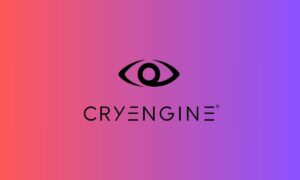
CryEngine is known for its high-end graphics capabilities, making it a strong choice for developers looking to create visually immersive games. It’s particularly well-suited for projects that require realistic environments and advanced physics.
Key Features:
- C++ and Visual Scripting: CryEngine supports both C++ programming and a visual scripting system, catering to developers with varying levels of coding experience.
- Photorealistic Rendering: The engine is capable of delivering photorealistic graphics, with advanced lighting, shading, and environmental effects.
- Full Source Code Access: CryEngine provides access to its full source code, giving developers complete control over their projects.
Licensing Model: CryEngine offers a free-to-use model where developers only need to pay royalties if their game generates revenue. The royalty is 5% of the revenue once the game earns more than $5,000 annually.
Cocos Creator

Cocos Creator is a powerful engine for mobile game development, offering a comprehensive set of tools for both 2D and 3D game creation. It integrates seamlessly with Cocos2d-x, a popular framework for mobile games.
Key Features:
- JavaScript and TypeScript Support: Cocos Creator supports both JavaScript and TypeScript, providing flexibility in scripting.
- Visual Editing: The engine offers a robust visual editor for scene creation, animation, and UI design.
- Mobile Optimization: Cocos Creator is optimized for mobile platforms, ensuring smooth performance across a wide range of devices.
- Flexible Pricing: Cocos Creator offers flexible pricing options, with additional services and tools available for purchase as needed.
Specialized or Niche Game Engines
Some game engines are tailored for specific genres or types of games. These specialized engines provide unique features that cater to the needs of particular projects, making them ideal for developers with a clear vision of the type of game they want to create.
Ren’Py
Ren’Py is a visual novel engine that has become the go-to tool for developers of narrative-driven games. Its simplicity and powerful scripting capabilities make it an excellent choice for creating branching storylines and dialogue-heavy games.
Key Features:
- Python-Based Scripting: Ren’Py uses Python for scripting, which is both powerful and easy to learn.
- Visual Novel Specialization: The engine is designed specifically for visual novels, with built-in support for dialogue boxes, branching paths, and character expressions.
- Multi-Platform Export: Ren’Py supports export to multiple platforms, including Windows, macOS, Linux, Android, and iOS.
- Free and Open-Source: Ren’Py is completely free to use and modify, supported by a passionate community of developers.
Adventure Game Studio (AGS)
Adventure Game Studio (AGS) is a niche engine designed for creating 2D point-and-click adventure games. It has a strong community that has produced both commercial and free titles.
Key Features:
- Specialized Scripting: AGS provides a scripting language tailored to adventure games, making it easier to create puzzles, dialogues, and item interactions.
- Retro Aesthetics: The engine is popular for creating games with retro graphics, mimicking the look and feel of classic adventure titles.
- Free to Use: AGS is free to use, with no licensing fees, making it accessible to hobbyists and indie developers alike.
Twine
Twine is an open-source tool for creating interactive text-based games. It is particularly popular among indie developers focused on narrative and player choice.
Key Features:
- HTML and CSS: Twine outputs games as HTML files, allowing developers to customize the appearance and functionality using HTML, CSS, and JavaScript.
- Nonlinear Storytelling: Twine excels at creating nonlinear stories, with support for branching narratives and complex decision trees.
- Ease of Use: Twine is designed to be easy to learn and use, making it accessible to writers and designers with no programming experience.
- Free to Use: Twine is completely free and open-source, with a strong community that provides tutorials, plugins, and support.
Comparison of Game Engines
To help developers choose the right engine, here’s a comparison of the key features, costs, and community support for the most popular game engines.
|
Engine |
Platforms Supported |
Scripting Language |
Cost |
Community Support |
|
Unity |
Windows, macOS, Linux, iOS, Android, Consoles |
C# |
Free (Paid tiers available) |
Extensive |
|
Unreal Engine |
Windows, macOS, Linux, iOS, Android, Consoles |
C++, Blueprints |
Free (5% royalty after $1M revenue) |
Extensive |
|
Godot |
Windows, macOS, Linux, iOS, Android |
GDScript |
Free |
Growing |
|
GameMaker |
Windows, macOS, Linux, iOS, Android, Consoles |
GML, Drag-and-Drop |
$99-$799.99/year |
Moderate |
|
RPG Maker |
Windows, macOS, iOS, Android |
Event Scripting |
$59.99 – $79.99 |
Moderate |
|
CryEngine |
Windows, macOS, Linux |
C++, Visual Scripting |
Free (royalty-based) |
Moderate |
*Please note: Prices mentioned are subject to change and may vary based on current offers or promotions.
Cost vs. Value
When choosing between free and paid game engines, it is essential to consider the long-term value and cost implications. While free engines like Godot and Unreal provide powerful features at no upfront cost, they may come with other costs, such as royalties or limited support. Paid engines, on the other hand, often offer more advanced features, better support, and more scalability, which can be crucial for larger or more complex projects.
Community and Support
The size and activity of a game engine’s community can significantly impact a developer’s experience. Engines like Unity and Unreal, with large and active communities, offer extensive resources, tutorials, and third-party plugins. In contrast, engines with smaller communities, like AGS or Ren’Py, may have fewer resources available but can offer more niche support tailored to specific genres.
Conclusion
Selecting the right game engine is a crucial step in any indie game development project. By understanding the strengths and limitations of each engine, developers can make informed decisions that align with their project’s goals, budget, and technical requirements. Whether you’re working on a narrative-driven visual novel, a mobile-optimized 2D platformer, or a visually stunning 3D game, there’s an engine out there that’s perfectly suited to your needs.

